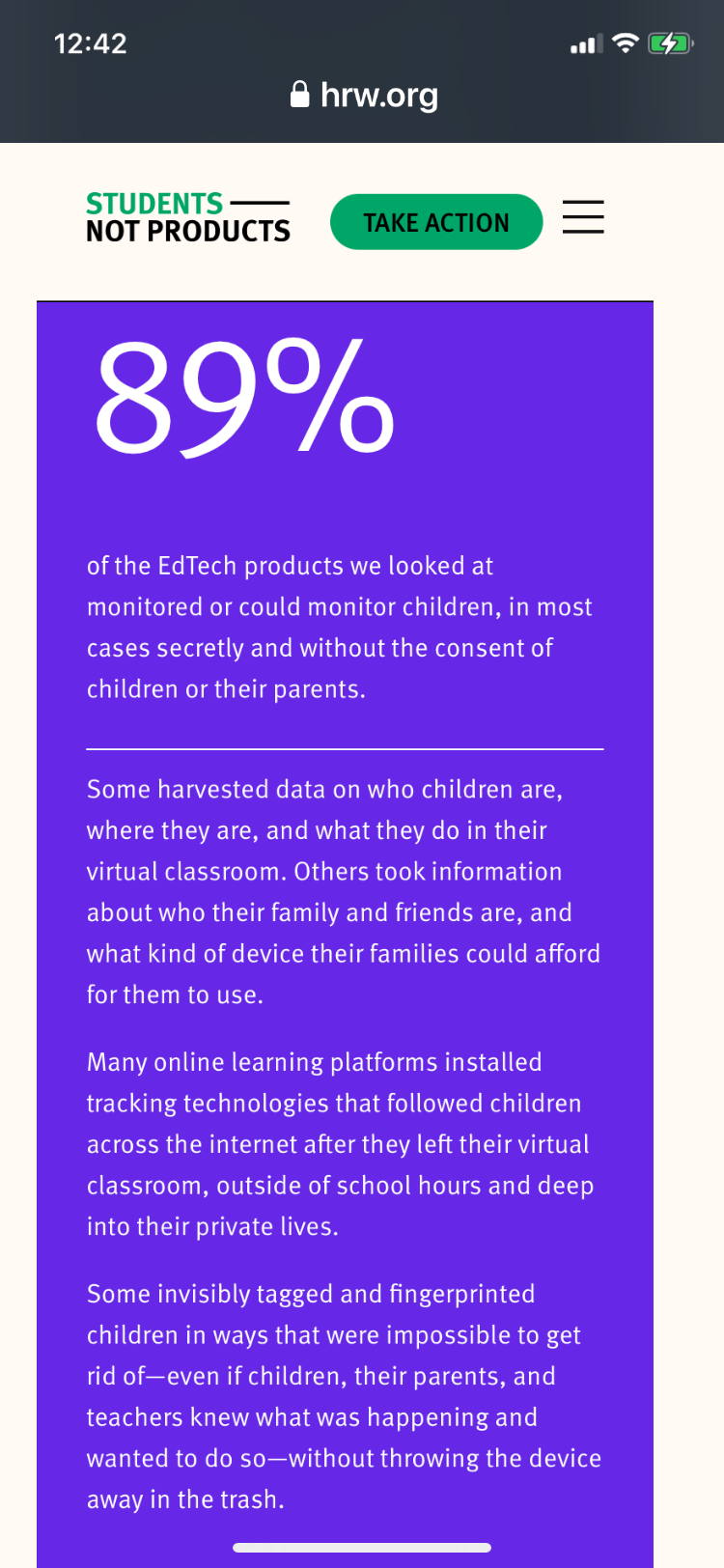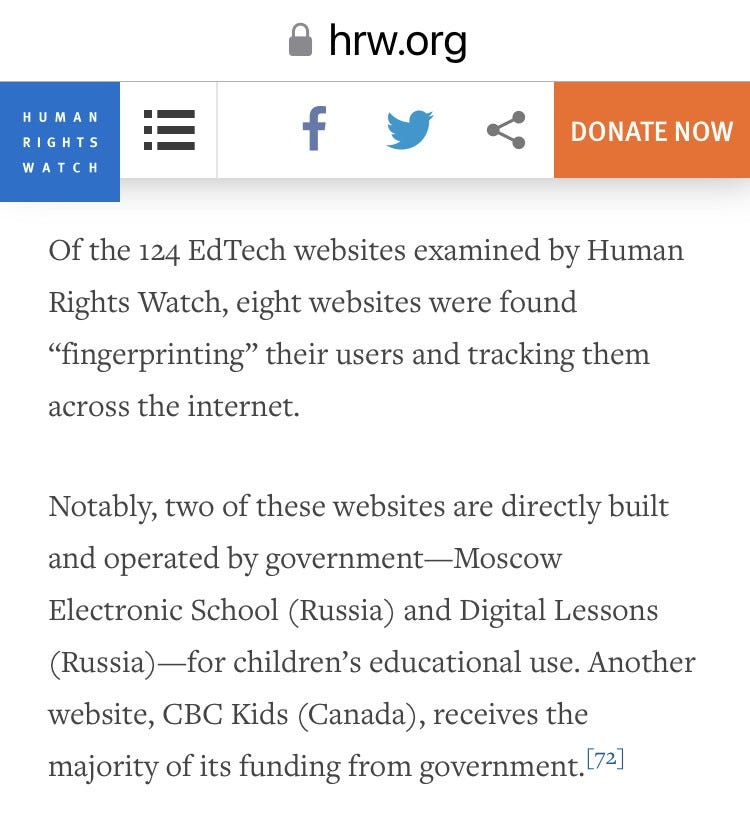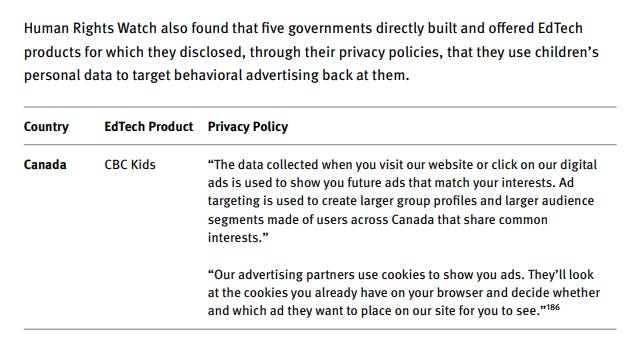How Dare They Peep Into My Child's Private Life
Human Rights Watch has issued a report that highlights the potential harm of certain digital products that children are exposed to.
Parents may want to pay closer attention to the digital products and websites their children are using. Read more about it here.
Of the 163 EdTech products reviewed, 145 (89 percent) appeared to engage in data practices that put children’s rights at risk, contributed to undermining them, or actively infringed on these rights. These products monitored or had the capacity to monitor children, in most cases secretly and without the consent of children or their parents, in many cases harvesting data on who they are, where they are, what they do in the classroom, who their family and friends are, and what kind of device their families could afford for them to use.
Most online learning platforms installed tracking technologies that trailed children outside of their virtual classrooms and across the internet, over time. Some invisibly tagged and fingerprinted children in ways that were impossible to avoid or get rid of—even if children, their parents, and teachers had been aware and had the desire and digital literacy to do so—without throwing the device away in the trash.
It’s worth considering if a social contagion could be fuelled by curated social media and algorithmic manipulation.
Schools and government should be very careful about the digital products they are supporting:
Education offered to children needs to “promote the realization of the child’s other rights,”[293] placing the best interests of students as a “primary consideration.”[294] As digital technologies can be used to support children’s access to education, the Committee on the Rights of the Child has stated that governments “should ensure that the use of those technologies is ethical and appropriate for educational purposes and does not expose children to … misuse of their personal data, commercial exploitation or other infringements of their rights.”[295]
CBC Kids was one such app.
Case Study: CBC Kids, Canada When a child opens CBC Kids, offered by the Canadian Broadcasting Corporation and recommended by Canada’s Quebec Education Ministry for pre-primary and primary schoolaged children’s learning, the first thing they see on the page are large, brightly colored tiles.191 In July 2021, the first tile featured a photo marked by a heart emoji and captioned, “AWW: Check out these cute baby animals.” Another tile was filled with brightly colored characters and titled “MONSTER MATH! Are you a math wizard? Let’s find out.” The front page also offered the newest episode of “The Adventures of Paddington;” the link was decorated with the smiling face of the famous fictional bear, waving his paw at the viewer.
The CBC Kids website lures the kids in then tracks their data and sends it to other companies.
At the same time, when the child opens up the website[CBC Kids], an invisible swarm of ad trackers and cookies get to work. Human Rights Watch found 29 third-party trackers collecting and sending data about children to 18 companies, mostly AdTech, and another 15 third-party cookies sending children’s data to nine companies, mostly AdTech. To put this into perspective, this is more than five times the median number of three cookies and more than four times the median of seven ad trackers installed on the world’s most popular internet sites—sites that include heavily trafficked e-commerce sites with explicit business interests in marketing.
Keep a closer eye on what your kids are doing online.










